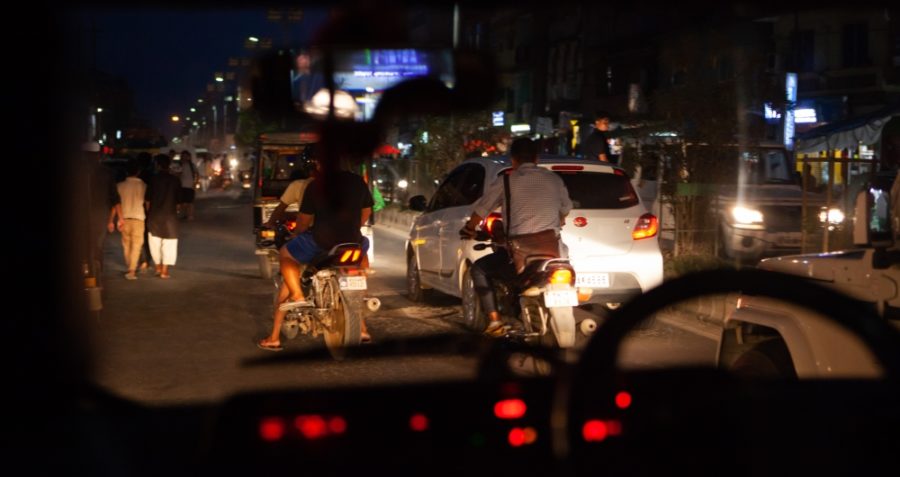Four reasons to end the silence on the war on drugs
 © Gemma Taylor for Frontline AIDS
© Gemma Taylor for Frontline AIDS
The war on drugs has wreaked havoc on millions of people across the world for half a century, but remains uncontested by all but a few. It has become an established part of the world order, even when its devastating impacts – not to mention its lack of success – are all too obvious.
But times are changing. The recent surge of the Black Lives Matter movement has motivated masses of people to challenge long-standing racism, demanding fundamental changes to law enforcement and other institutions. At the same time, governments are taking unprecedented measures to respond to COVID-19, suddenly making the impossible possible, leading many to consider what we want the new normal to be.
All over the world, Frontline AIDS partners work closely with people who use drugs. Every day we witness the devastating impact of the war on drugs. Here are four reasons why it’s time to speak up against it.
1. The war on drugs is a war on people
Designed in the US, the war on drugs has been exported all over the world, allowing governments to arrest, incarcerate and persecute millions of men and women, most of them guilty of nothing more than using or carrying a substance for personal use. It has opened the gates for corruption, extrajudicial killings, forced labour camps, police harassment, sexual abuse and many other wrongs.
Being labelled a drug user is unforgiving. In many countries, a person who is arrested for drug possession will have their criminal record tainted for years, preventing them from securing employment, finding a place to live, voting and even having legal custody of their children.
Women are disproportionally harmed by this war. Not only are they being incarcerated for producing, trafficking or consuming drugs at increasing rates, they are also often victims of drug-related violence. The knock-on effects on families who are already living on the fringes of society are devastating.
2. The war on drugs is a racist war
The war on drugs has become a highly efficient tool to propel institutional racism. In the US, black people are almost four times more likely than white people to be arrested for marijuana possession even though black and white people use marijuana at comparable rates. Similarly, the UK Drug Policy Commission concluded ten years ago that “drug-related enforcement activities are disproportionately targeted at black and minority ethnic (BME) groups” although the prevalence of drug use among these groups was reported lower than that among white ethnic groups. Since then the situation has only worsened.
In Brazil, people killed in the war on drugs are overwhelmingly black, while in Australia police mainly target young Aboriginals. On the production side of the drug chain things are hardly different. In Myanmar, the world’s leading opium producer in the 1970s, ethnic minorities were the ones suffering most from the war on their crops. In Colombia, the effects of spraying coca crops has damaged the environment, health and livelihood of communities of predominantly Afro-descendants. Thus, drug policies all around the world have served as a vehicle for racism and state violence.
3. The war on drugs fuels the HIV pandemic
The war on drugs, in combination with a severe lack of harm reduction and other HIV prevention services, is one of the most significant drivers of the global HIV epidemic. Outside of sub-Saharan Africa, people who use drugs account for one in three new HIV infections. In countries where the war on drugs has been fought aggressively, like Russia and other parts of eastern Europe and central Asia, the number of people living with HIV has tripled since 2000.
The war on drugs has also resulted in overcrowded prisons, which became an acute issue with the advent of COVID-19. In Thailand 73% of prisoners are incarcerated because of drug-related offences. Globally, 83% of recorded drug offences are simple possession offences. Sex and sharing injecting equipment are common in prisons, leading to many people acquiring HIV while incarcerated. Most prisoners have no access to HIV prevention measures such as sterile syringes or condoms. As a result, HIV prevalence in prisons is, in some places, 15 times higher than that in the general population.
4. The war on drugs is a failure
Ever since its earliest days, the war on drugs has done the exact opposite of what it supposedly aimed to do. The worldwide supply of illicit opiates such as heroin has increased by more than 380% in past decade, despite ever-increasing funding for police, border authorities and other law enforcement bodies. In spite of this, the price of heroin has decreased and its purity increased. Between 1998 and 2008 the number of people using opiates rose by 34.5%, from 12.9 million to 17.35 million.
Time to end it
Ending the war on drugs is absolutely necessary to end AIDS and achieve social justice for everyone, everywhere. Therefore we raise our voice. We call upon governments to stop locking up, abusing and killing people who use drugs and start protecting their rights; to strengthen systems that support people, rather than punishing them and pushing them to the margins and over the edge; and to defund the institutions that lead the war on drugs, and instead invest in the health, well-being and rights of people. All people.
Ancella Voets is Lead: HIV Technical (Harm reduction) at Frontline AIDS.
With contributions from Revati Chawla, Lead Programmes at Frontline AIDS.
Tags
DecriminalisationHarm reductionHIV preventionHuman rightsPeople who use drugs

